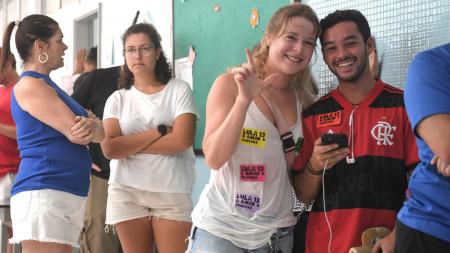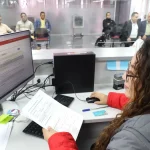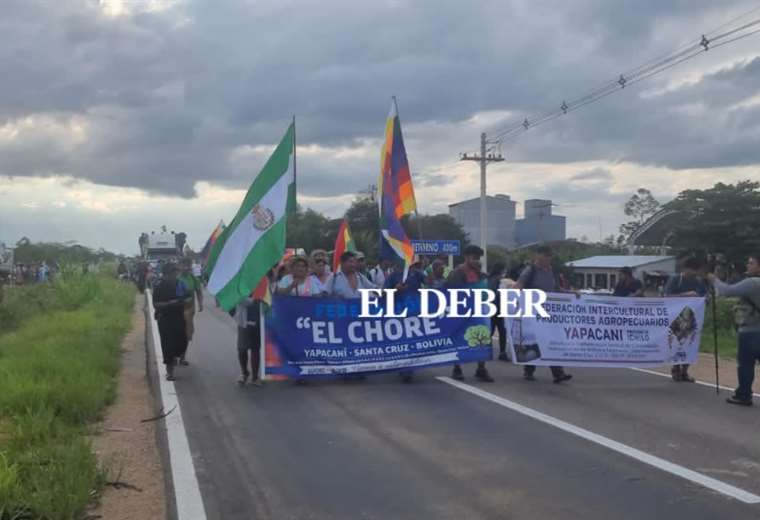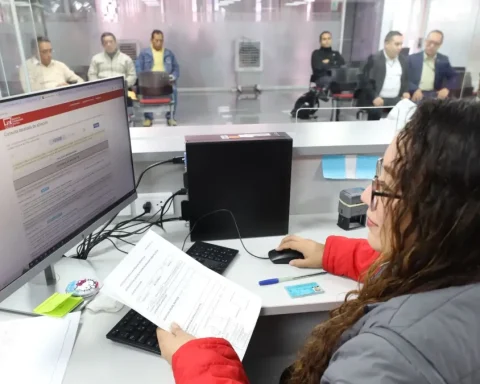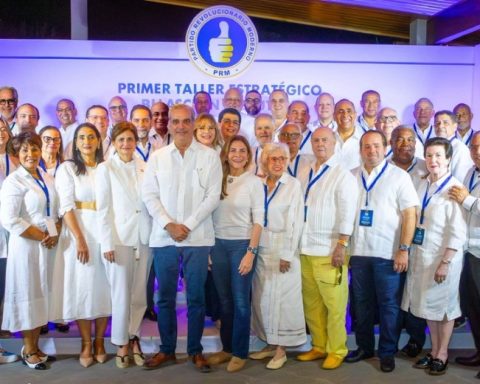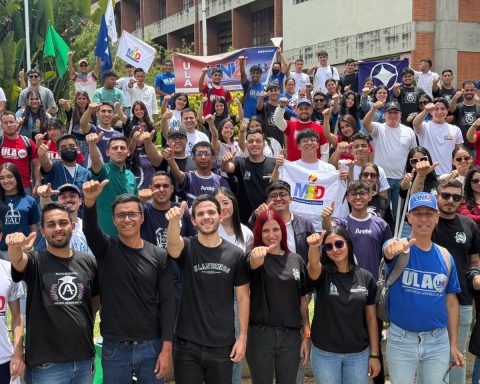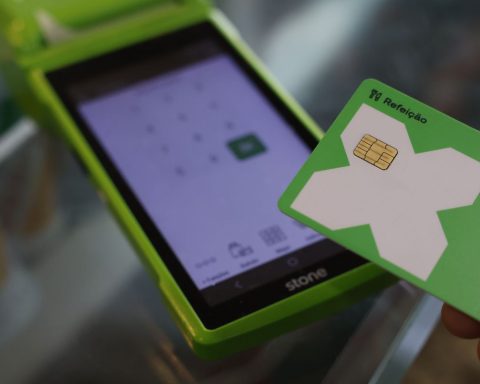Former president Luiz Inácio Lula da Silva led the vote count in the ballot with 50.56% compared to 49.44% for the president of Brazil, Jair Bolsonaro.
The runoff between President Jair Bolsonaro and his rival Luiz Inácio Lula da Silva in a historic runoff was marked by the scandal generated by operations on the routes that delayed voters of the opposition leader.
This second round crowns one of the most violent campaigns in Brazil since the return to democracy, which included attacks in which several Lula supporters were killed by Bolsonaro supporters. The polling stations opened at 8 am and closed at 5 pm and then the real-time dissemination of the results will begin thanks to the electronic ballot box system.

The tables closed at 5:00 p.m. (the same time in Argentina), after being open from 8:00 a.m., and then the real-time dissemination of the results will begin thanks to the electronic ballot box system.
Lula voted near São Paulo and said that “a model of country and life was at stake in the election, while the far-right Bolsonaro voted in Rio de Janeiro and was confident of winning “God willing” and “for the good of Brazil.”
The Highway Police was involved in a scandal by installing more than 540 operatives on routesespecially in the northeast of the country, with which they blocked the passage of many voters of Lula’s Workers’ Party (PT).
The scandal with the police that marked election day
The president of the PT, Gleisi Hoffmann, called for the arrest of the head of the institution, Silvinei Vasques, who had posted a message on Instagram in support of Bolsonaro’s re-election.
The official was summoned urgently to the Superior Electoral Court, whose head, Alexandre de Moraes, ordered the cessation of operations between 3:30 p.m. and 5:00 p.m., that is, until the end of the vote.
Moraes, considered partial by President Bolsonaro since 2021 when he began to denounce the lack of transparency of the electronic ballot boxes, maintained that the police chief’s report indicates that the operations were for “transit” issues and that the actions will be investigated one by one. .

“It was determined that all operations will cease even so that the voters are not late for the voting period,” he assured after meeting with the police headquarters, although he clarified that the vehicles did not return to the place of origin, but that the voters have only suffered a “delay.”
Politicians from the Bahia PT denounced that deputies and senators were stopped because they wore stickers with Lula’s face.
150 million voters
Some 150 million Brazilians were eligible to vote today. More than 20% of the electorate abstained from doing so in the first round and a large part of the final effort of both candidates was aimed at boosting turnout at the polls.
The 67-year-old president, in power since 2019, presents himself as the champion of traditional family values, opposed to abortion and same-sex marriage and comprehensive sex education.
We have “victory expectations for the good of Brazil. We have only had good news in recent days. God willing, we will be victorious this afternoon,” Bolsonaro said after voting at a school in western Rio de Janeiro.

The far-right president arrived at the school in the Villa Militar neighborhoodin the west of Rio de Janeiro, minutes before the opening of the tables, escorted by a caravan of black cars and dressed in the jersey of the Brazilian soccer team.
From there he went to the Galeao International Airport to welcome the Flamengo club soccer team, which yesterday won the Copa Libertadores de América in Ecuador. The president raised the glass and took photos with the players.
Former President Lula, 77, voted an hour and a half later at a school in the industrial belt of São Paulo.
“This election does not define only a country model, but defines a life model for Brazilians“, he said, dressed in a white guayabera, after leaving the same school where he first voted himself for president in 1989.
“For this reason, it is the most important election of my life, for a project so that democracy is the winner,” he added.
The veteran leftist leader advocated relaunching the South American and Latin American integration process, reinforcing Mercosur and recomposing Unasur to be able to negotiate with the great powers on a more equal footing.
12 governors are elected
In this high voltage choice also 12 governors will be elected in a ballot in states of which the most important are Sao Paulo, Rio Grande do Sul and Pernambuco.
The alliance of parties that supports Bolsonaro obtained a large majority in Congress in the first round of October 2, which would facilitate an eventual new mandate for the president and make it difficult for a Lula government if he were to win.

Hours before the ballot, two polls released last night showed Lula ahead: one by 52% to 48%, from the consulting firm Datafolha, and another by 54% to 46%, by the consulting firm Ipec.
The first round of the elections
In the first roundLula prevailed by 48.4% to 43.3%But Bolsonaro performed much better than the polls had predicted.
The former president promises to “fix the country”, still impacted by the coronavirus pandemic crisis and its 688,000 deaths, which he has blamed on a lousy management of the health crisis by Bolsonaro.
Lula has emphasized socioeconomic achievements in his two terms, between 2003 and 2010, when 30 million Brazilians lifted themselves out of poverty with social initiatives financed by a boom in raw materials exported by Brazil.

The former president has the support of the most vulnerable and of those who resented the policies and outbursts of the extreme right-wing Bolsonaro, such as young people, women and minorities.
The president, on the contrary, has the support of the white electorate, of people with higher incomes, of sectors linked to agribusiness and, above all, of evangelists.
Both candidates have promised to maintain social aid policies that Bolsonaro has redoubled in recent months ahead of the elections.
